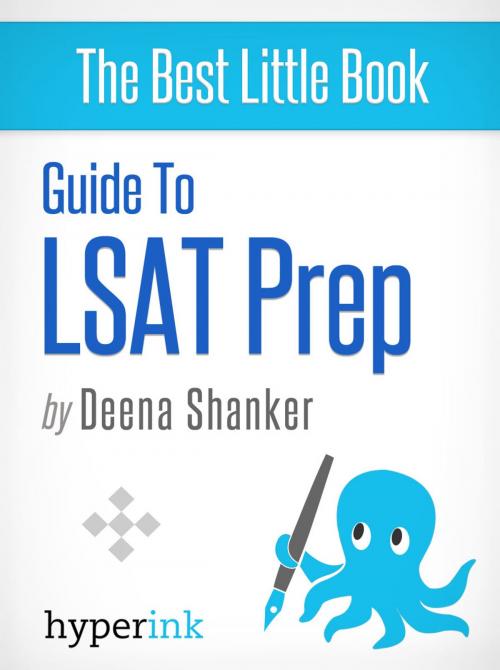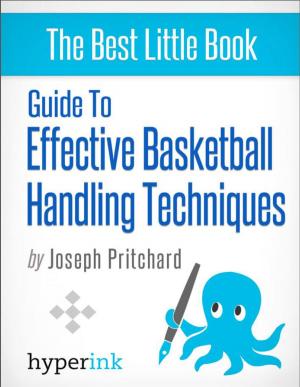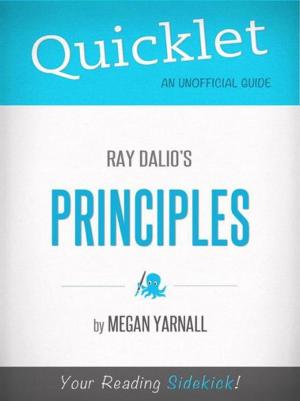The Best Little Book On General Advice For LSAT Test Prep
Nonfiction, Reference & Language, Study Aids, Graduate & Professional, LSAT| Author: | The Law School Admissions Team | ISBN: | 9781614643463 |
| Publisher: | Hyperink | Publication: | July 29, 2011 |
| Imprint: | Language: | English |
| Author: | The Law School Admissions Team |
| ISBN: | 9781614643463 |
| Publisher: | Hyperink |
| Publication: | July 29, 2011 |
| Imprint: | |
| Language: | English |
ABOUT THE BOOK
You want to go to law school and now youre starting to think about the actual application process, and inevitably, the LSAT. Before you make this very significant and expensive decision, I would feel that I was abdicating my duty, as a former lawyer and as a compassionate human being, if I didnt take a few minutes to make sure you have fully evaluated this major life choice. Ask yourself why you want to go to law school.
Prior to endeavoring to take this very annoying, very single purpose exam, you need to figure out the answer to that question. Watch this video. Read the comments on Above The Law and think about whether you want to work with people like that. Check out The Peoples Therapist, a blog written by an attorney turned therapist, lamenting the interminable slog that is a legal career. Read the comments on his blog too. And of course, talk to lawyers that you know. Law school is a very serious financial and time commitment, and no longer the ticket to a life of prosperity as it was once thought to be.
All of that being said, if you still want to go law school, youre going to have to take the LSAT. Law schools for the most part look at two things: your GPA and your LSAT score. (Sure they read your essays and recommendations, but if you dont have the numbers, youre almost definitely out of luck.) A lot of people dread this test, thinking of it as an obstacle instead of a potential credential. But really, this is great news for those of you who may have slacked off in college and dont feel like your GPA is a good representation of your potential. If you do well on your LSAT, you can balance it out.
MEET THE AUTHOR
Deena Shanker is a writer living in San Francisco. After moving to the west coast from New York City in the fall, she is loving San Fran's beautiful weather, colorful architecture, and never-ending vegetarian food options. She loves visiting the beach with her dog, Barley, and eating cheese (also sometimes with Barley). She is a graduate of the University of Pennsylvania Law School and Barnard College.
EXCERPT FROM THE BOOK
Once you know when your test is, you can start to decide how youre going to get ready for it. I highly recommend taking a prep course of some kind. These days, there are a lot of options when it comes to taking these classes. You will be paying good money for this, so its important that you pick the one that is best suited for your needs and habits.
The biggest reason to pay the money for a prep course is that it will teach you to take the test systematically, to recognize question types and understand how to answer them, and it will provide you with the resource of an instructor. Though you shouldnt think of an instructor as a personal tutor, you can spend a few minutes before or after class, or during the breaks, to speak with your instructor about specific questions something you will never be able to do with a book.
There are several reasons that one may decide to hire a tutor for the LSAT. You may be doing relatively well on the practice exams, but want to nudge your score up a few more stubborn points. Or you may be doing terribly on your practice exams, and you just dont know what youre doing wrong.
If you are in the second group, I highly recommend that you again reconsider your decision to take the test and go to law school. It is what it is, but the LSAT is generally a good indicator of how well a person does in law school. If you are really struggling with this test, you should evaluate whether law is the profession for you. There is nothing wrong with not being a lawyer! The logical reasoning is not particularly fun or better than any other type of thinking, and if you discover early on that your brain doesnt work that way, embrace the message the universe is sending you and figure out how your brain does work.
Buy a copy to keep reading!
ABOUT THE BOOK
You want to go to law school and now youre starting to think about the actual application process, and inevitably, the LSAT. Before you make this very significant and expensive decision, I would feel that I was abdicating my duty, as a former lawyer and as a compassionate human being, if I didnt take a few minutes to make sure you have fully evaluated this major life choice. Ask yourself why you want to go to law school.
Prior to endeavoring to take this very annoying, very single purpose exam, you need to figure out the answer to that question. Watch this video. Read the comments on Above The Law and think about whether you want to work with people like that. Check out The Peoples Therapist, a blog written by an attorney turned therapist, lamenting the interminable slog that is a legal career. Read the comments on his blog too. And of course, talk to lawyers that you know. Law school is a very serious financial and time commitment, and no longer the ticket to a life of prosperity as it was once thought to be.
All of that being said, if you still want to go law school, youre going to have to take the LSAT. Law schools for the most part look at two things: your GPA and your LSAT score. (Sure they read your essays and recommendations, but if you dont have the numbers, youre almost definitely out of luck.) A lot of people dread this test, thinking of it as an obstacle instead of a potential credential. But really, this is great news for those of you who may have slacked off in college and dont feel like your GPA is a good representation of your potential. If you do well on your LSAT, you can balance it out.
MEET THE AUTHOR
Deena Shanker is a writer living in San Francisco. After moving to the west coast from New York City in the fall, she is loving San Fran's beautiful weather, colorful architecture, and never-ending vegetarian food options. She loves visiting the beach with her dog, Barley, and eating cheese (also sometimes with Barley). She is a graduate of the University of Pennsylvania Law School and Barnard College.
EXCERPT FROM THE BOOK
Once you know when your test is, you can start to decide how youre going to get ready for it. I highly recommend taking a prep course of some kind. These days, there are a lot of options when it comes to taking these classes. You will be paying good money for this, so its important that you pick the one that is best suited for your needs and habits.
The biggest reason to pay the money for a prep course is that it will teach you to take the test systematically, to recognize question types and understand how to answer them, and it will provide you with the resource of an instructor. Though you shouldnt think of an instructor as a personal tutor, you can spend a few minutes before or after class, or during the breaks, to speak with your instructor about specific questions something you will never be able to do with a book.
There are several reasons that one may decide to hire a tutor for the LSAT. You may be doing relatively well on the practice exams, but want to nudge your score up a few more stubborn points. Or you may be doing terribly on your practice exams, and you just dont know what youre doing wrong.
If you are in the second group, I highly recommend that you again reconsider your decision to take the test and go to law school. It is what it is, but the LSAT is generally a good indicator of how well a person does in law school. If you are really struggling with this test, you should evaluate whether law is the profession for you. There is nothing wrong with not being a lawyer! The logical reasoning is not particularly fun or better than any other type of thinking, and if you discover early on that your brain doesnt work that way, embrace the message the universe is sending you and figure out how your brain does work.
Buy a copy to keep reading!















